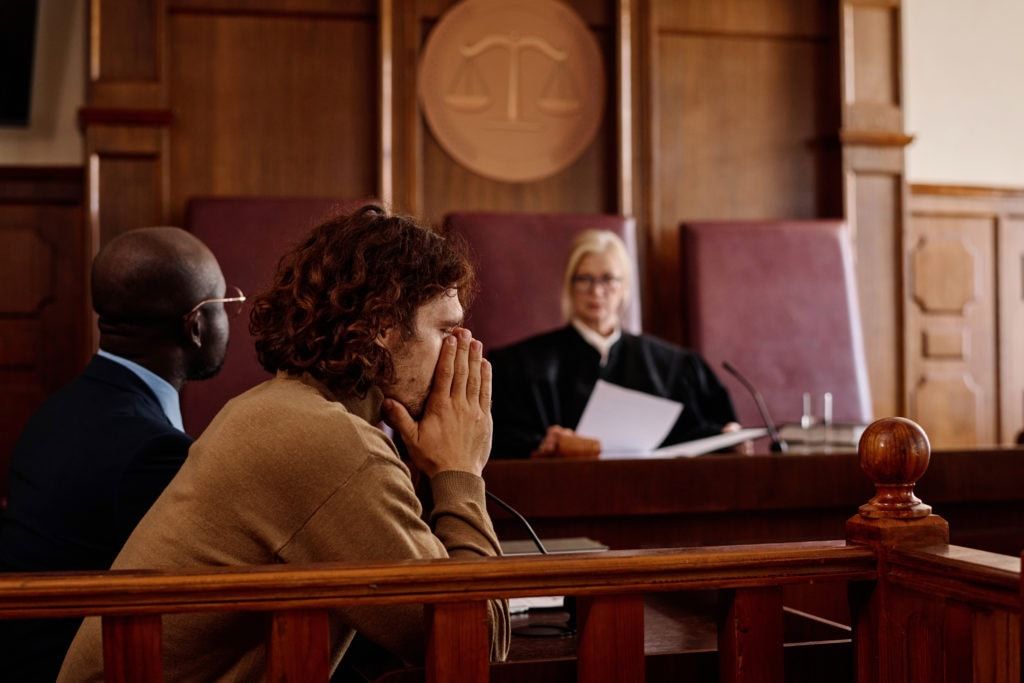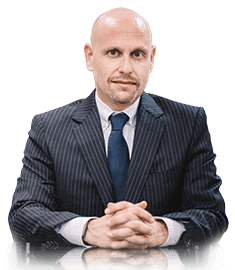Opinion Evidence at Trial

When an individual testifies as a witness, their primary job is to testify about facts that are within their knowledge. Generally speaking, the court is not interested in a witness’s opinion on particular facts. That’s because, in general, witnesses are not experts capable of making an informed opinion on a particular matter. Furthermore, statements by witnesses based on their opinions alone can be very confusing for the jury.
The jury may be tempted to substitute the witness’s opinion on the value of facts presented as evidence for their own opinion or inferences. Because of this, opinion evidence is generally inadmissible at trial. This means that witnesses are prohibited by the rules of evidence from asserting their own opinion as part of their oral testimony.
There are two exceptions to the rule against opinion evidence. The first exception pertains to everyone and the second exception pertains only to individuals who are testifying as recognized experts on a particular topic of interest to the court.
The Graat v. R. Case
The Supreme Court of Canada established the rule governing expert opinion by non-experts, also known as “lay persons”, in the case of Graat v. R. In this case, Mr. Graat was charged with impaired driving. The main dispute was whether Mr. Graat was indeed impaired when encountered and arrested by the police. The prosecution summoned several officers to testify about Mr. Gaat’s impairment.
The court challenged the fact that the officers were not experts in determining impairment. In conclusion, the court allowed the officers to express their opinion about Mr. Graat’s intoxication, noting their use of “intoxicated” as a compact way of delineating observed behaviours such as slurred speech, poor balance or coordination, and impaired motor skills.
Limitations on Opinion Evidence by Non-Experts
Legal Constraints on Layperson Testimony
Despite this, the court established constraints on the type of opinion evidence a non-expert can provide in court. Specifically, a layperson is barred from testifying on a legal issue. For instance, a layperson could not state that a defendant was “negligent” due to its specific legal connotation and the judge’s role in determining negligence in a trial.
Whether an individual is intoxicated is not a legal question, as “intoxicated” has no unique legal definition. This concept is rooted in the everyday knowledge and experience of the average person, thus enabling laypersons to voice opinions on intoxication. However, the court warned that since the police use “intoxicated” not as experts but as a summary of observable signs usually linked to intoxication, their testimony should not carry more weight than that of a regular person, including non-police officers.
Permissible Opinion Evidence within Layperson Purview
This decision implies that lay persons are permitted to offer opinion evidence on matters under their purview, provided that their opinions are not given undue weight. The jury should perceive the witness’s opinion as shorthand for a series of observations and the matter under discussion should be within the jury’s knowledge and experience. These are common knowledge matters.
Challenge and Credibility of Layperson Opinion Evidence
If a witness states “the defendant was drunk”, they mean to convey that they noted several behaviours typically associated with drunkenness. The defence is free to challenge the witness’s opinion by questioning its credibility. The witness could be questioned about their own state of sobriety at the time, or alternative explanations like nervousness or physical disability could be suggested for the accused’s seemingly intoxicated demeanour.
In the Sherrard v. Jacob case, the court listed several topics other than intoxication that laypersons could testify about in court. These encompass identification of handwriting, people and objects; perceived age of a person; physical plight or condition of a person, including death or sickness; emotional state of a person, such as being distressed, incensed, or hostile; condition of objects, like worn, shabby, used or new; matters of value; estimations of velocity and distance. These are common knowledge matters within the expertise of the jury and witnesses.
Role of Expert Witnesses in Criminal Trials
Experts, like psychiatrists, pathologists, and crime scene analysts, regularly provide opinions at criminal trials on aspects within their field of expertise. Almost any topic that extends beyond the average person’s knowledge can call for an expert witness, assuming their input elucidates the legal matters at hand and aids the trier of fact.

Potential Dangers and Challenges with Expert Evidence
However, expert evidence possesses inherent risks as the expert witness can inadvertently encroach on the jury’s premises. At a criminal trial, the jury makes factual decisions concerning all factual questions that emerge during the trial. Consequently, the jury might uncritically accept an expert’s statement due to the expert witness’s credentials, articulate expression, and adeptness at being a witness. Expert witnesses are often in court frequently and thus come across very well to a jury.
Furthermore, it can be arduous for the opposing lawyer to meaningfully cross-examine the expert witness without having comparable expert knowledge themselves. Resultantly, expert witnesses’ statements often go unchallenged in the court records. As the jury usually lacks the expert’s field knowledge, recognizing errors or gaps in the expert’s report becomes exceedingly difficult.
Criteria for Admitting Expert Evidence
The protocol for admitting expert evidence in court was established by the Supreme Court through the test in R. v. Mohan. The court maintained that admitting expert evidence is predicated on four criteria: Relevance, Necessity in Assisting the Jury, Absence of an Exclusionary Rule, and Proper Quality Confirmation of the Expert. All these criteria must be met before an expert’s statement can be admitted.
Moreover, the court confirmed that the scientific theory forming the basis of an expert’s opinion must be sound. Consequently, all courts now use the Daubert test to decide whether to admit evidence based on a particular scientific theory at trial. A theory must pass several rigorous criteria before its evidence can be admitted. Despite all these precautions, the potential risk of expert evidence was evidenced in the recent Dr. Charles Randall Smith scandal.
Case Study: The Scandal Surrounding Dr. Charles Randall Smith
Dr. Smith was a doctor who testified in several cases as an expert on “shaken baby syndrome”, a common cause of death in infant homicide cases. However, he began presenting subjective opinions and crossed the professional boundary into advocating for the punishment of abusive parents regardless of whether the syndrome’s signs were clinically evident. A 2009 coroner’s review found Dr. Smith to have made questionable conclusions in at least 20 cases, with 13 likely resulting in wrongful convictions. This clear example underscores how expert testimony, if misapplied, bears serious consequences in the courtroom.

Jonathan Pyzer, B.A., L.L.B., is an experienced criminal defence lawyer and distinguished alumnus of McGill University and the University of Western Ontario. As the founder of Pyzer Criminal Lawyers, he brings over two decades of experience to his practice, having successfully represented hundreds of clients facing criminal charges throughout Toronto.





